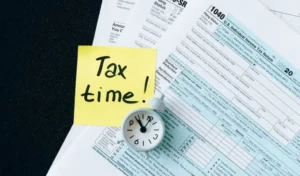IRS Notices: What Does This IRS Letter Mean?
If you don’t pay or file a tax return, the IRS will generally send you a reminder to pay or file. If you don’t take action, the agency will send a series of more serious notices as they escalate collection actions.
The IRS also sends notices to alert taxpayers about collection actions, audits, and other critical matters. IRS notices can be very scary, and they’re often hard to understand. If you’re receiving notices, do not ignore them. Review them carefully and consider reaching out to a tax attorney for help.
Watch: Understanding IRS Notices and What to Do Next
Attorney Stephen Kass explains what common IRS notices mean, how to respond, and what actions to take if you receive one. This short video can help you avoid costly mistakes when dealing with the IRS.
Video courtesy of the Law Offices of Stephen B. Kass. Learn how our firm helps clients respond to IRS letters, avoid levies, and resolve tax debt effectively.
This post looks at some of the most common IRS notices. To get help or ask questions now, contact the Law Offices of Stephen B. Kass today.
Balance Due Notices
If you have unpaid taxes, the IRS may send you the following notices. You may receive these notices if you file a return and don’t pay, if the IRS assesses tax against you in an audit, or if the IRS adjusts your tax return in a way that leads to a tax liability.
- CP14 – First Notice of Balance Due
- CP501 – Reminder of Balance Due
- CP503 – Second Payment Request Notice
- LT17 – Use Online Services to Take Action on Balance Due
These notices will tell you how much you owe and the interest and penalties that have accrued on your account. They will also outline payment options, and they often contain a QR code that leads to an IRS webpage with more details about the notice and your options.
Intent to Levy Notices
The IRS can seize your state tax refund and apply it to your federal tax debt if you don’t pay your taxes. To alert you, the IRS typically sends the following notice:
- CP504 – Final Notice and IRS Intends to Levy
If your tax refund doesn’t cover your full tax liability, the IRS may garnish your wages and seize your bank accounts or other assets, but first, the agency must alert you by sending a notice. The levy notice must outline your right to request a hearing to protest the levy.
Here are some of the levy notices you may receive:
- CP90 – Intent to Seize Assets and Right to a Hearing
- LT1058 – Intent to Levy and Right to a Hearing
- LT11 – Intent to seize your property
These notices typically give you 30 days to request a hearing. The hearing is generally a phone call, but it may be in person. During the meeting, you can explain why the IRS shouldn’t levy your assets, and you can propose payments or other arrangements.
Miscellaneous Collection Notices
The IRS uses many different tactics to collect unpaid taxes. Here are some of the miscellaneous notices the agency may send to taxpayers with unpaid liabilities:
- LT40 – Tax Debt Sent to Private Collections
- CP508C – Passport Revocation Due to Seriously Delinquent Tax Debt
- 725-B – Request to Meet With Revenue Officer
In 2024, the agency also sent out many LT38 Resumption of Collections. These notices alerted taxpayers that the agency was resuming collections after a period of inactivity during the height of the COVID pandemic.
Notices About Unfiled Tax Returns
If you didn’t file a tax return and the IRS believes that you should have filed one, the agency will send you a notice such as the following:
- LT16 – Overdue Taxes or Tax Return
- CP59 Notice – Unfiled Tax Returns
You should respond to these notices by filing a tax return or by telling the agency why you didn’t file. If you don’t respond, the agency may assess tax against you based on income documents received from other entities (for example, W2s, 1099s, etc).
Then, the IRS may send the following notices:
- CP2566 – Tax Assessed on Unfiled Return
- CP3219N or 3219A – 90-Day Notice of Deficiency
You must respond to these notices promptly if you want to avoid a tax assessment or ensure that the IRS doesn’t start involuntary collections.
Business Tax Notices
In some cases, the IRS sends the same notices to individuals and businesses, but there are certain notices reserved exclusively for businesses.
- CP504B – Asset levy notice for businesses. This is similar to the CP504 sent to individuals.
- Federal tax deposit notices – If the IRS wants to meet with you or have a phone call about late payroll tax deposits, they may send letter 5446 or 5857.
- Letter 226-J – Your business may be liable for a penalty for not offering health insurance.
- Letter 5699 – Your business didn’t complete Forms 1094-C and 1095-C related to health care coverage for your employees.
Audit Notices
The IRS generally has up to three years after a return has been filed to audit it. In cases where the taxpayer significantly understated their income, the agency has up to six years to audit. If you are selected for an audit, the agency will send you an audit letter.
The letter will explain the type of audit, the documents you need to provide, and the deadline for providing them. While some audits occur in person, most are conducted through correspondence so you will receive several letters including information document requests (IDRs) through the audit process.
At the end of the audit, the auditor will send you their decision in a letter. The audit decision letter will explain whether the auditor accepted your return as filed or wants to make changes. It will also tell you how to appeal if you disagree.
Notices About IRS Payment Plans
If you cannot afford to pay your taxes in full, you may qualify to set up an IRS installment agreement. These agreements let you make monthly payments on your tax debt. If you owe less than $50,000, you can generally set up a payment plan online, but whether you apply online or through the mail, you may encounter the following forms and notices:
- 433-D – Form to Set Up Direct Debit Payments
- CP523 – Intent to Terminate Installment Agreement
The second notice comes if you miss a monthly payment. It tells you how to make the payment to keep your payment plan in good order. If you don’t get caught up by the deadline, the IRS may demand payment in full and start sending you the levy notices listed above.
How to Tell If an IRS Notice Is Legitimate
Unfortunately, scammers sometimes send notices that look like IRS notices. These notices may come from bad actors who want to trick you into giving them your banking or other personal notices. In other cases, companies that sell certain services send out notices that appear to be from a government agency to scare or trick someone into taking a certain action.
To tell if your notice is legitimate or not, look for the IRS logo on the top left of the notice. The top right should note the type of notice, taxpayer ID, type of tax, tax period, and other critical details. Often, important notices come through Certified Mail, but not always.
If you’re unsure about the legitimacy of a notice, contact the IRS directly. Generally, you should use the number printed on the notice to get directed to the most relevant IRS employee. However, if you are unsure about the notice, you should call the IRS’s main phone number. Then, you can verify whether or not they really sent the notice.
Get Help With IRS Notices
At the Law Offices of Stephen B. Kass, we specialize in helping taxpayers resolve complex tax problems and IRS tax debt. We understand how stressful it can be to receive notices from the IRS or the state, and we are here to help you. To get guidance and to talk about your resolution options, contact us today. We will leverage our knowledge of the tax law and IRS procedures to get you the best resolution possible for your situation.
















